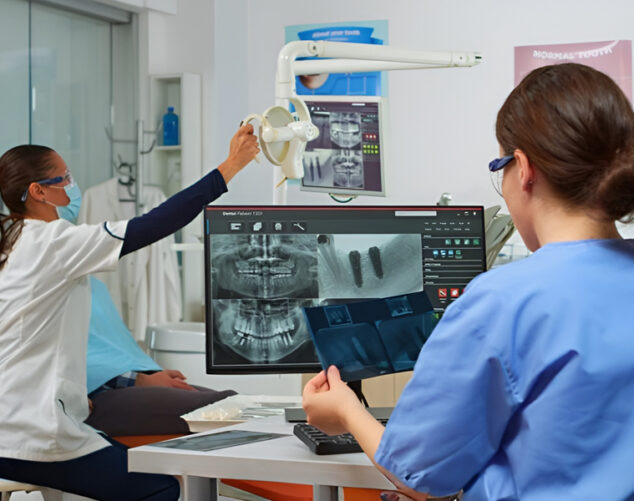
Can You Avoid Bone Grafting Before Implants? Here’s When It’s Possible
Dental implants transform smiles, restoring comfort and confidence effortlessly. But the thought of bone grafting can seem daunting. Is it always necessary? Not necessarily. Discover when you might safely skip this step, and learn how your dentist can identify the ideal path toward stable, lasting implants, simplifying your journey to a healthy, enhanced smile.
Understanding Bone Grafting in Implant Dentistry
Let’s keep it straightforward. Bone grafting in Surrey, BC, helps rebuild areas in your jaw where bone is missing or too thin. Why does that matter? Because dental implants need strong support, just like fence posts need solid ground.
Here’s how it works:
- A bone graft adds volume and strength to your jaw.
- It uses bone from your own body, a donor, or a synthetic source.
- After healing, your jaw becomes strong enough to hold an implant in place.
It’s a proven technique and often necessary, but not always.
When Is Bone Grafting Typically Required?
Bone loss in the jaw can take place for several reasons. If you’ve been missing teeth for a while, the jawbone in that area might shrink. This natural process is called resorption.
You might need a graft if:
- You lost a tooth years ago and never replaced it.
- Gum disease affects the bone around your teeth.
- An injury damaged part of your jawbone.
- Your sinus cavity sits too close to the implant site (for upper teeth).
- Your jaw was naturally thin in certain areas.
That said, not every patient fits the same mould. Even if your bone looks a bit thin, there might be other ways to place implants safely.
Factors That Determine Whether You Can Skip Bone Grafting
Here’s where things get interesting. Some people don’t need bone grafts at all before getting implants. Your dentist in Surrey looks at several things to decide:
- Amount of Bone Left: If your jaw has enough depth and width, a graft may not be needed.
- Location of the Missing Tooth: Front teeth usually need more precision, while back teeth may allow more flexibility.
- Overall Health: Healthy gums, no major infections, and a strong immune system can increase your chances.
- Implant Type: Some implant systems are designed to work with less bone.
- Time Since Tooth Loss: The sooner you act after losing a tooth, the better your chances of avoiding a graft.
Techniques That May Help You Avoid Bone Grafting
Dentistry keeps moving forward. Today, there are smart ways to work around thin bone and still place implants that last.
Here are a few options your local dentist might suggest:
- Short Implants: These require less bone and can still provide strong support.
- Zygomatic Implants: For upper jaw cases, these anchor in the cheekbone, avoiding the need for sinus lifts or grafts.
- Angled Implants: These are tilted to find the strongest available bone.
- Immediate Implants: Placing the implant at the same time as the tooth extraction may prevent bone loss altogether.
Each approach depends on your specific case. A skilled dentist evaluates your X-rays and 3D scans to recommend the right plan.
Are You a Candidate for Implants Without Bone Grafting?
The only way to know for sure? Get a full evaluation. If you’re looking for dental implants near you, start with a consultation.
Your dentist will examine:
- Your medical and dental history
- Bone density through digital imaging
- Gum health and overall oral hygiene
- Your expectations for look, comfort, and function
Some patients come in expecting a graft and leave, discovering they don’t need one. Others choose to go ahead with a small graft to improve implant success. Both are valid routes—what matters most is safety and long-term success.
Risks of Skipping Bone Grafting
Now, it’s important to talk about what could go wrong if you avoid a graft when it’s really needed. Some patients hope to take a shortcut, but doing so can lead to problems.
Potential risks include:
- Implant Failure: If there isn’t enough bone, the implant may not hold.
- Gum Recession: Thin bone can cause the gums to shrink or pull back over time.
- Infection: Loose implants are harder to clean, increasing infection risk.
- Shifting Bite: A missing bone can affect how your teeth fit together.
Skipping a graft only works when your foundation is solid. Your dentist will be honest with you about this.
Final Thoughts
You may not always need a bone graft to enjoy the benefits of tooth replacement with dental implants. With careful evaluation and the latest solutions, you could be ready sooner than expected. At Newton Dental Group, we’re here to guide you with clarity and care. Schedule your consultation today and take the first step toward a confident, lasting smile.